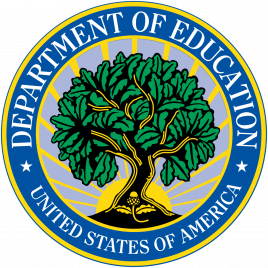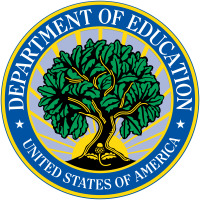ED Aims To Boost Collaboration Among Grantees Through Communities of Practice

Its origins may go back to 1993, but it’s still may be a relatively unfamiliar term for many in the federal grants environment. But be prepared, we’re likely to hear more about the benefits of participating in a “community of practice,” or CoP, especially those under development by the Department of Education (ED).
CoPs are groups of people who share a concern or a passion for something they do and want to learn how to do it better as they interact regularly. At ED, a CoP is defined as a virtual space for schools, school districts, institutions of higher education, and their community-based organization (CBO) partners to collaborate, share and learn from the experiences of others in the field.
This month, ED will launch two new multistate CoPs designed to help states address the impact of lost instructional time from the pandemic on students’ social, emotional, mental health and academic well-being. The first, created in partnership with the National Comprehensive Center, is the “Evidence-Based Interventions: Using American Rescue Plan Resources to Accelerate Learning Community of Practice.” This CoP will help state educational agencies (SEAs) and local educational agencies (LEAs) accelerate learning using American Rescue Plan Act (ARPA) (Pub. L. 117-2) funding in sustainable ways. Teams of SEAs and LEAs will work with their partner CBOs to explore different evidence-based strategies to accelerate learning and build their organizational capacity to support districts and schools in implementing these practices using ARPA Elementary and Secondary School Emergency Relief funds for evidence-based interventions such as high-dosage tutoring and expanded learning time. ED notes that this CoP will address students’ needs by providing local educators, school staff, partners and leaders with the skills needed to design and deploy interventions that work for all students to recover lost instructional time, particularly those most impacted by the pandemic.
A second CoP is the “Toward an Equitable Education and Recovery: Transforming Kindergarten Community of Practice,” which ED is developing with the Campaign for Grade Level Reading and the department’s T4PA Center, among other partners. This CoP will engage a cohort of state and district teams to share best practices, policies and initiatives that will allow the kindergarten year to become a more effective path to early school success and learning recovery, especially for those children who have been historically underserved and most adversely affected by the ongoing pandemic. It will consist of a series of virtual meetings on topics such as social-emotional development, family engagement and supportive transitions that respond to disparities in access to in-person learning and nationwide under-enrollment for young children.
Along with these new CoPs, ED will continue to support states who participated in the Summer Learning and Enrichment Collaborative (SLEC) through a “Strategic Use of Summer and Afterschool Set-Asides Community of Practice.” This CoP supports state teams and their partners in promoting strategic and sustainable use of ARPA funding to accelerate learning through summer and out-of-school time programming. This community of practice will build on the success from the SLEC, which brought together 49 SEAs and more than 1,300 participants.
It will be interesting to see how these CoPs can enhance education going forward.
Join us for our following Thompson Grants events:
Federal Grants Forum: Orlando | December 14 - 16, 2021 | Orlando, Fla.
Nonprofit Legal, Finance, and Grants Conference| March 22, 2021 | Washington, D.C.



